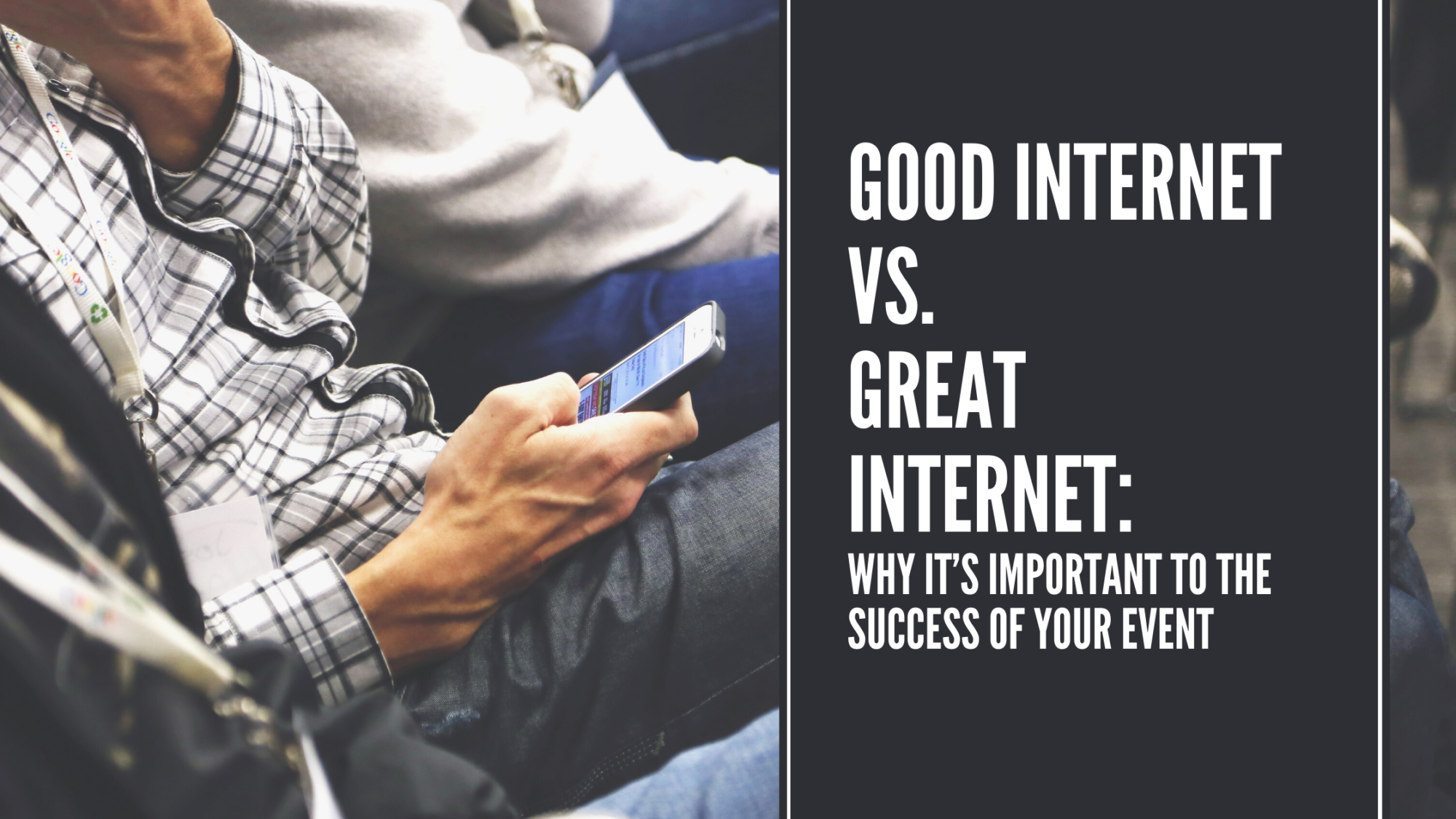“Internet access has become a basic utility like electricity and running water – ease of connectivity is a priority, and after that having adequate Bandwidth matters but it’s important to know what attendees will be using the connectivity for in order to plan properly,” says Michael Judeh, Regional Director of Technology NYC IACC.
I have personally witnessed events, that day of live-streaming testing on the in-house Internet worked just fine. Still, no one planned for when the 300-people arrived at the door with online registration, and the Internet Badge Printers wouldn’t work, as attendees were also logging on to the WiFi network. This caused lines, confusion, and concern over the pivotal live-streaming later in the day.
Using the “running water” analogy, who has lived in an apartment complex when everyone is home, washing clothes, taking showers, flushing toilets, and noticed you’ve got no water pressure, plus a cold shower?!
If an apartment complex is not designed for 100% capacity usage at the same time (which usually they are not because it’s costly), this is precisely what is happening when the Internet goes bad at your event!
So, let’s help you construct the perfect “home” for a successful tech-related event (aren’t they all these days?).
First off, it is essential to know who is calling your event “home”:

